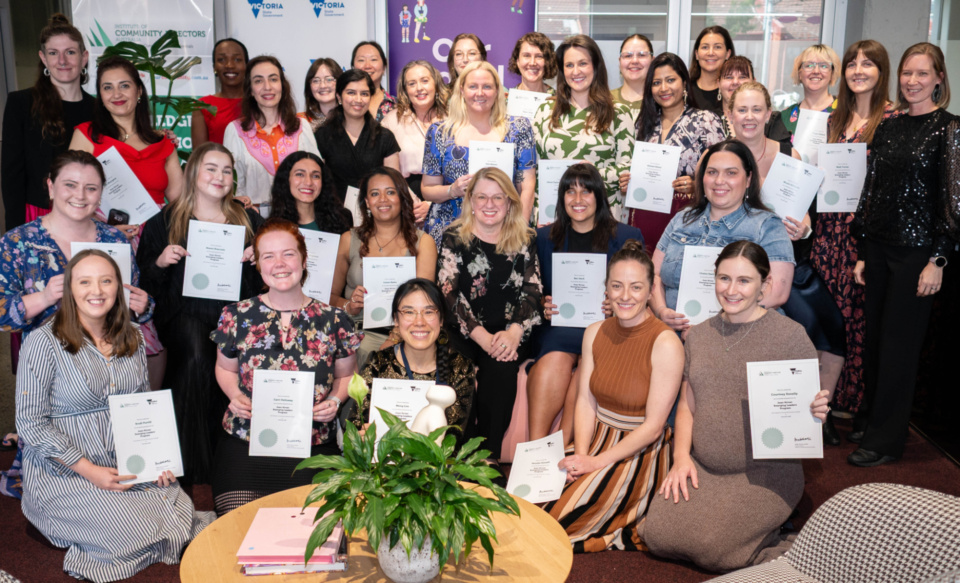
What not-for-profit leaders need to know in 2026
Posted on 12 Feb 2026
Our special NFP trends report distils the views of more than two dozen experts.
Posted on 26 Jun 2025
By Justin Hogg, RightSource

It’s that time of year when organisations are really focused on their finances, and that means considering proper financial governance.
Governance is fundamentally about people. To fulfil your organisation’s purpose, everyone must be heading in the same direction. Governance aligns people and purpose.
If governance is about aligning people and purpose, then financial governance is where specific financial (or accounting) tools are used to create that alignment.
"While financial governance clearly relies on accounting and finance skills, at its heart it’s about crafting the right message for your audience."

All organisational reporting is, at its core, about storytelling. The best stories are those that show how the organisation’s purpose is being achieved through strategy.
Financial reporting should be approached in the same way. Be clear about the story you’re trying to tell. What are the numbers saying, and are they telling the right story? If a report isn’t contributing to that narrative, leave it out. If it could be more effective presented another way, be creative.
Accounting is a language through which meaning is expressed. Start with the purpose in mind and shape your reporting to show how the organisation is delivering on that purpose. That’s how you create financial reporting that’s meaningful, concise and aligned, and leads to shared understanding.
When telling stories to your board, you’ll need to offer two types: one non-fiction, one fiction.
The non-fiction account tells the story of the past: the organisation’s financial results. These are substantiated, follow set principles, and should be captured accurately. While their format can vary, the skill lies in turning data into understanding.
The “fictional” story – and this is not to say dishonest – is future-facing. Forecasts, budgets and cashflows are imagined scenarios, informed by data and assumptions. They help the board see where the organisation is heading and how present decisions might affect future outcomes.
These stories provide a chance to sidestep disasters or seize opportunities. The key is understanding what drives the organisation’s performance and illustrating those drivers clearly with less restriction on form but the same focus on insight.
In many not-for-profits, the annual financial statements are left to the accountants and only surface at board or committee level post-audit. The result is often a stark, technical document that is disconnected from the carefully crafted narrative of the annual report or impact statement.
But what if we saw financial statements as part of the same story?
If the finance and communications teams work together to plan both documents with a shared message in mind, the outcome is a more consistent and compelling presentation and a clearer signal to stakeholders.
Bringing your financial statements into alignment with your annual report supports the overall story and helps attract stakeholders who share your purpose. That can translate into greater funding and deeper engagement, which are essential ingredients for sustainability.
An organisation tends to have a preferred or prescribed way of doing every task, often handed down verbally or captured in written guides. These practices aim to get the job done while keeping everyone safe.
That’s what internal controls are about: keeping people safe. They are the guardrails that help everyone stay on board and moving toward the same goal. They ensure the right steps are followed, and when something goes wrong, they provide a way to detect and correct it.
Once again, the goal is alignment through shared understanding and trust.
While financial governance clearly relies on accounting and finance skills, at its heart it’s about crafting the right message for your audience.
It should not be left solely to the accountants. Everyone in the organisation can and should use it to create clarity, alignment and value, and to steer the organisation towards it purpose.
Justin Hogg is the managing director of RightSource, a consultancy supporting not-for-profits with services including governance advice, secretarial support, accounting, coaching and board facilitation.

Posted on 12 Feb 2026
Our special NFP trends report distils the views of more than two dozen experts.

Posted on 10 Feb 2026
As my family dropped our teenage son off at the airport in the first week of January to embark on a…

Posted on 11 Dec 2025
Community Directors trainer Jon Staley knows from first-hand experience the cost of ignoring…

Posted on 10 Dec 2025
As a qualified yoga instructor who learned the practice in her hometown of Mumbai, Ruhee Meghani…

Posted on 10 Dec 2025
Anyone working in an organisation knows it: meetings follow one after another at a frantic pace. On…

Posted on 10 Dec 2025
Stressed, overwhelmed, exhausted… if you’re on a not-for-profit board and these words sound…

Posted on 10 Dec 2025
The Institute of Community Directors Australia trains over 22,000 people each year, which gives us…

Posted on 03 Dec 2025
Many not-for-profit (NFP) board members in Australia are burnt out, overwhelmed and considering…

Posted on 26 Nov 2025
A roll call of Victoria’s brightest future leaders has graduated from a testing and inspiring…

Posted on 12 Nov 2025
At the Institute of Community Directors Australia, we believe that stronger communities make a…

Posted on 12 Nov 2025
Like many Community Directors members, Hazel Westbury is a community leader who isn’t easily…

Posted on 11 Nov 2025
I’ve seen what happens when fear of conflict wins out over taking a principled stand.